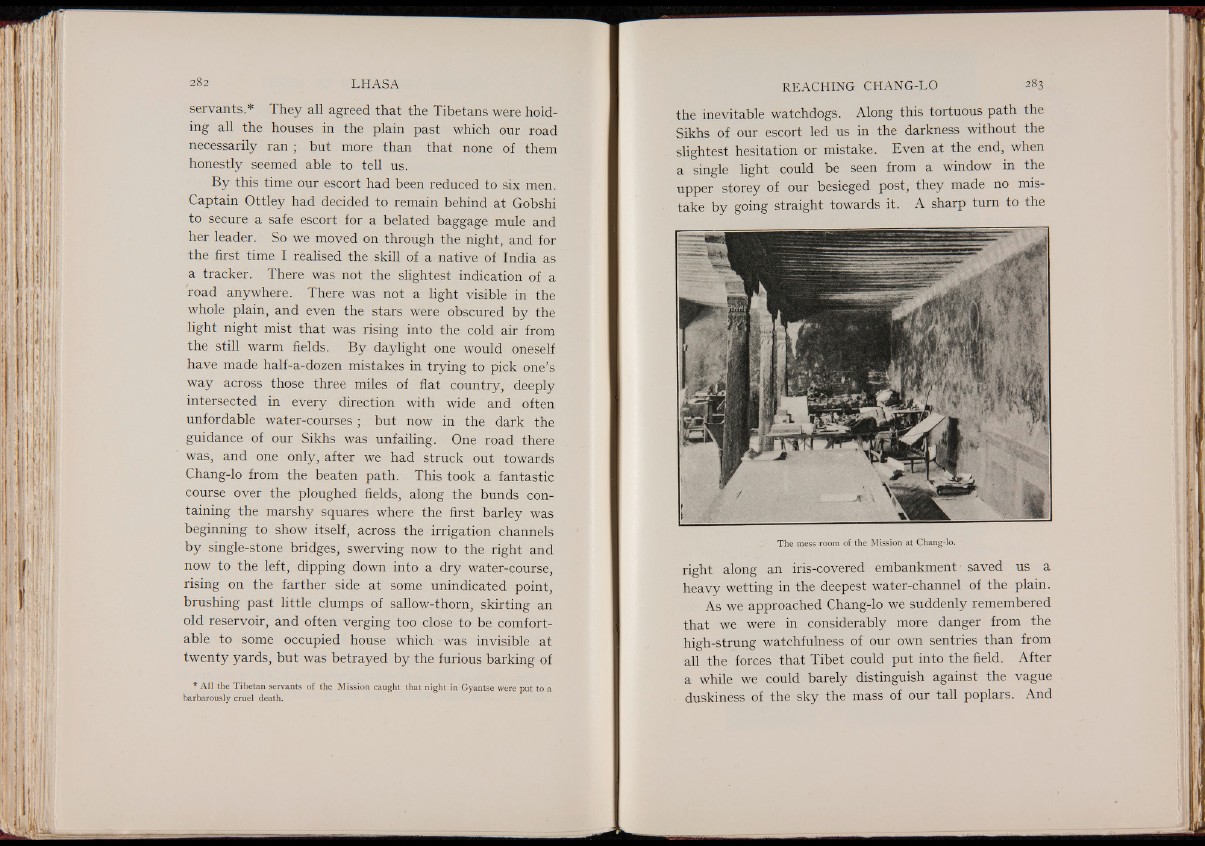
servants.* They all agreed that the Tibetans were holding
all the houses in the plain past which our road
necessarily ran | but more than that none of them
honestly seemed able to tell us.
By this time our escort had been reduced to six men.
Captain Ottley had decided to remain behind at Gobshi
to secure a safe escort for a belated baggage mule and
her leader. So we moved on through the night, and for
the first time I realised the skill of a native of India as
a tracker. There was not the slightest indication of a
road anywhere. There was not a light visible in the
whole plain, and even the stars were obscured by the
light night mist that was rising into the cold air from
the still warm fields. By daylight one would oneself
have made half-a-dozen mistakes in trying to pick one’s
way across those three miles of flat country, deeply
intersected in every direction with wide and often
unfordable water-courses; but now in the dark the
guidance of our Sikhs was unfailing. One road there
was, and one only, after we had struck out towards
Chang-lo from the beaten path. This took a fantastic
course over the ploughed fields, along the bunds containing
the marshy squares where the first barley was
beginning to show itself, across the irrigation channels
by single-stone bridges, swerving now to the right and
now to the left, dipping down into a dry water-course,
rising on the farther side at some unindicated point,
brushing past little clumps of sallow-thorn, skirting an
old reservoir, and often verging too close to be comfortable
to some occupied house which was invisible at
twenty yards, but was betrayed by the furious barking of
* A ll the Tibetan servants of the Mission caught that night in Gyantse were put to a
barbarously cruel death.
the inevitable watchdogs. Along this tortuous path the
Sikhs of our escort led us in the darkness without the
slightest hesitation or mistake. Even at the end, when
a single light could be seen from a window in the
upper storey of our besieged post, they made no mistake
by going straight towards it. A sharp turn to the
The mess room of the Mission at Chang-lo.
right along an iris-covered embankment' saved us a
heavy wetting in the deepest water-channel of the plain.
As we approached Chang-lo we suddenly remembered
that we were in considerably more danger from the
high-strung watchfulness of our own sentries than from
all the forces that Tibet could put into the field. After
a while we could barely distinguish against the vague
duskiness of the sky the mass of our tall poplars. And